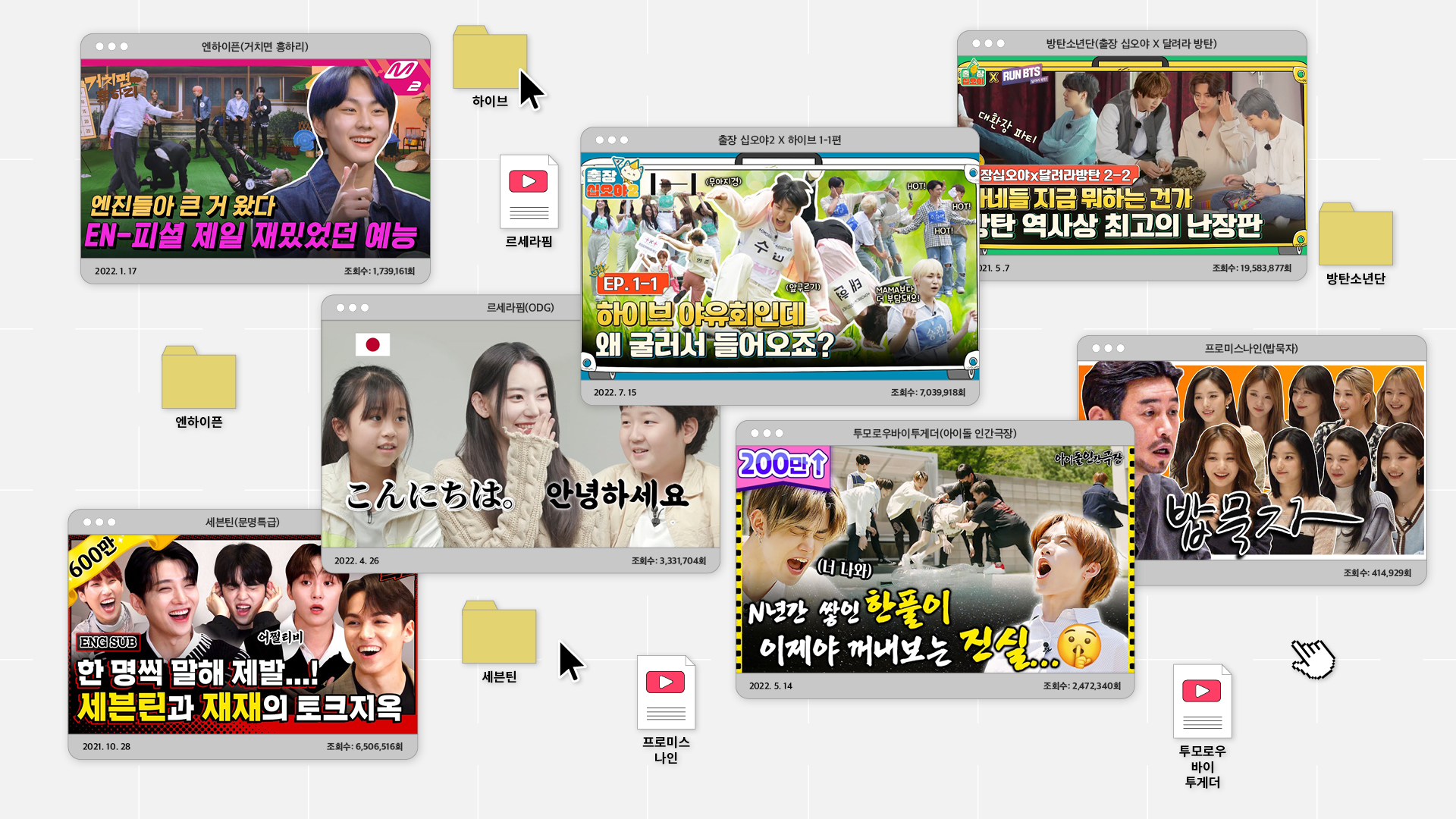
Just four days after the first part of episode one of The Game Caterers 2 x HYBE was released on July 15, the video, which stars the artists under HYBE LABELS, had already been viewed 7,039,918 times as of July 18. Part one of the episode was the top trending video on YouTube the day following its release, while parts two and three trended in second and seventh place, respectively. With the release of the videos, phrases related to the show, like “our stars,” “strength of body and mind” and “producer Na,” were trending all over Twitter. And that’s the reason idols are keener to appear on web variety shows than similar shows on TV. When SEVENTEEN released their album Face the Sun, they held a collaboration between their own series, GOING SEVENTEEN, and another popular web series, MMTG, calling the project GOING SVT X MMTG. By recording together but airing different videos on their respective channels, the two series found a lot of attentive viewers. SAKURA and KIM CHAEWON, two members of LE SSERAFIM, first promoted the group’s debut on YouTube as well, through channels ODG and Pixid. Notably, Jaejae, the host of MMTG, even went to Cannes and interviewed IU, Song Kang-ho, Gang Dong Won and Lee Joo Young, the cast of the movie Broker. Clearly, web series are taking over the function that TV shows once performed.
Kim Hyung Eun, team leader of the Artist Management Team at SOURCE MUSIC, LE SSERAFIM’s label, explained that “SAKURA was looking for a show where she could express the history behind her 10 years as an idol and her ambition to work in Korea” and how that led her to appear on ODG. In the lead-up to LE SSERAFIM’s debut, SAKURA went a long time without seeing her fans, and she was looking for a series where she could communicate to them all the stories she has with her group’s members as a regular person. KIM CHAEWON, meanwhile, met 20 of her long-time fans and by appearing in a video titled “20:1 Balance Game” on the channel Pixid she talked to them about her off time. While on ODG, SAKURA met two children—one Korean and one Japanese—and told them all about how she was making her third debut, this time as a member of LE SSERAFIM. Yoon Sung Won, the director for ODG, explained the motivation behind the video as “a good opportunity for SAKURA and the program to demonstrate how she’s experienced both cultures in a natural fashion.” Web variety shows are special because they “don’t simply go after the same view of celebrities as in older media but show their concerns and the thoughts they have as a regular person,” and “viewers can hear stories and see sides of them they’ve never encountered elsewhere.” Typical variety shows on TV can’t easily change their format to match the characteristics of their guests unless they’re reality-variety crossovers. Web variety shows, meanwhile, take pains to bring their subjects’ strengths and emotional stories to the screen. Whereas collaborations between popular programs on competing TV networks is nearly impossible, MMTG and GOING SEVENTEEN were able to film together and edit the footage into their own separate videos.
Unauthorized reproduction and distribution prohibited.